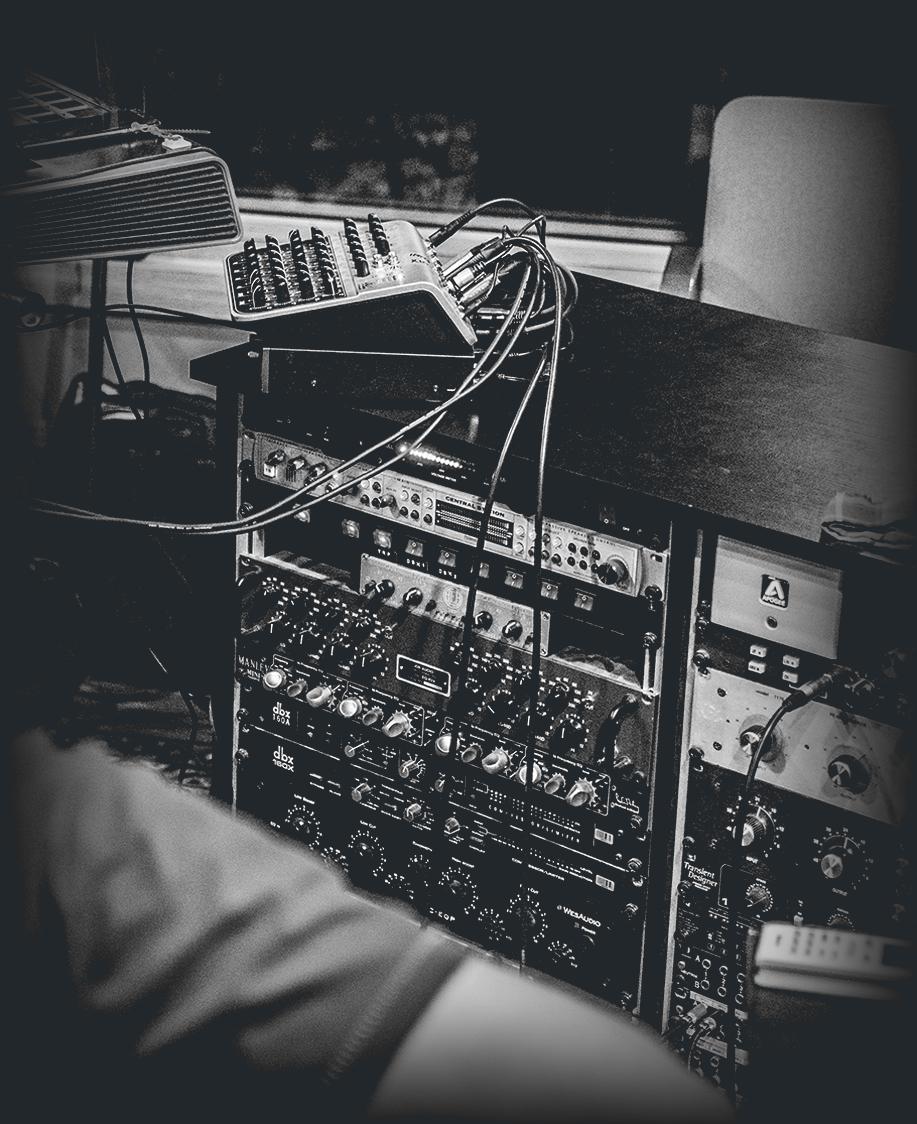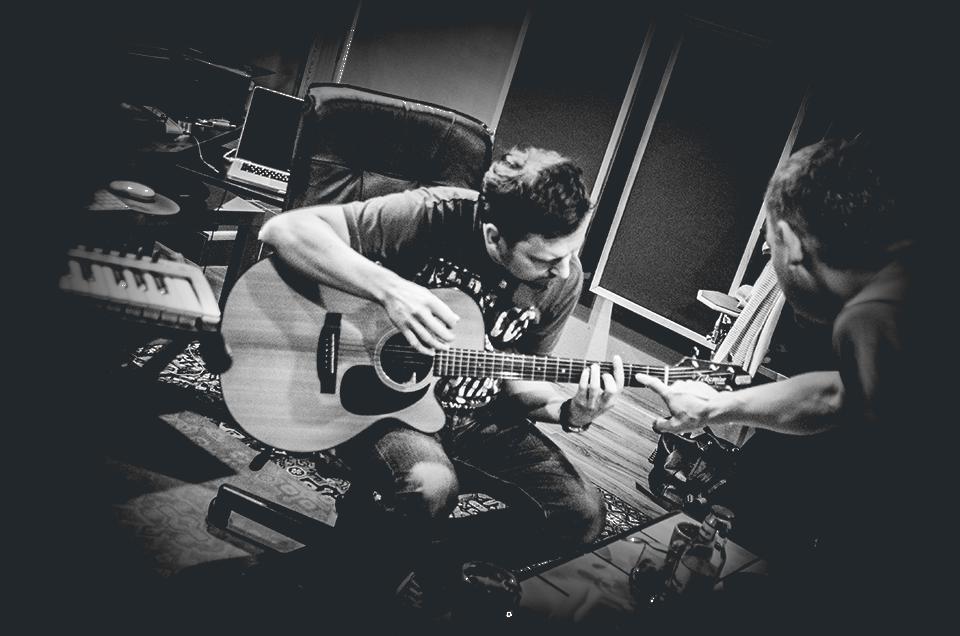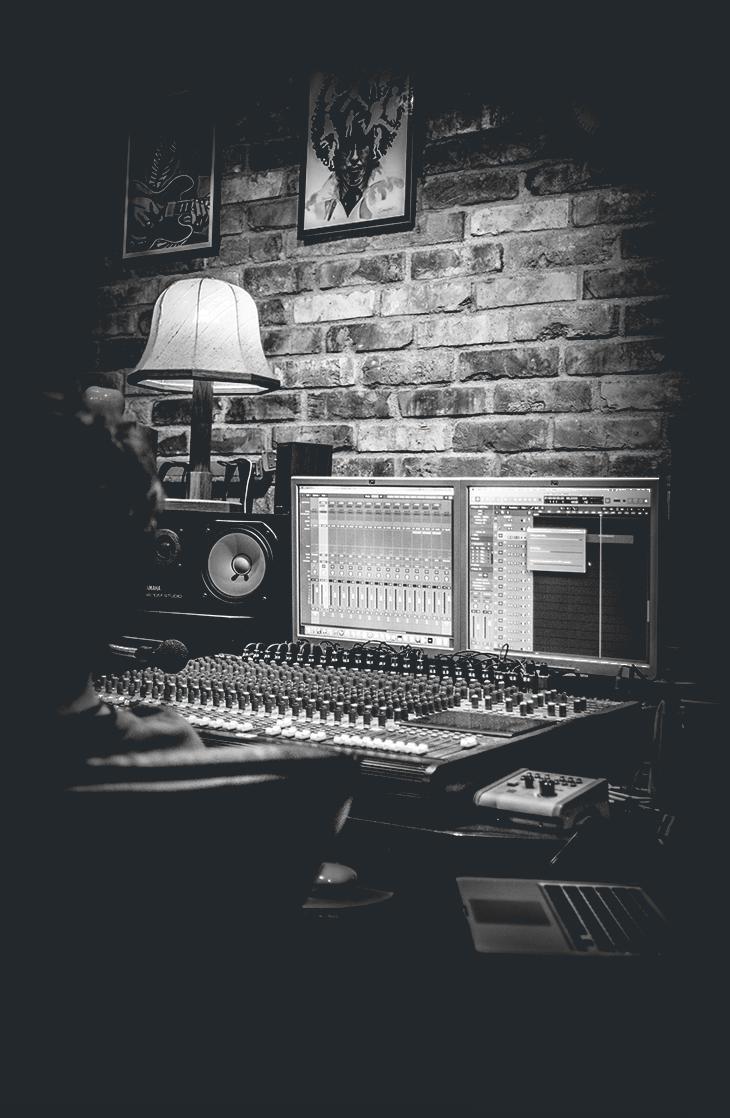Session

The course of a typical recording session:
Recording drums:
The first day is devoted to setting up the instrument, tuning and miking. We decide what snare drum to use, what microphones and heads fit best, etc. All depending on the desired effect. We make recordings in the following days. As a rule, 1-3 songs are recorded per day, depending on their complexity and the drummer’s skills. I edit the drum tracks as we go.
Recording guitars:
On the first day, we choose the right amplifier, loudspeakers, carefully check the guitars (scale, tuning, jack input, etc.), set up the mics and look for the desired sound. The following days are spent on recording the microphone tracks and the line signal. 1-8 songs a day including editing, depending on the complexity of the music and the musician’s skills.
Recording bass guitar:
Having selected the appropriate amplifier, speaker cabinet and guitar, as well as having tuned it, we record two types of signals: microphone and line. Recording the line signal allows you to possibly change the bass sound without having to re-record the part. 1-8 songs a day.
Recording keyboards:
Depending on the needs, we record keyboards directly (line-in) or using guitar amplifiers and miking techniques. Recording can be done in the MIDI format. I have a collection of several VST instruments and samplers.
Recording vocals:
If need be, when tracking vocals, we work with a keyboard, which makes it easier to "watch over" the melody lines, harmonies and possible changes in the existing lines. I have the ability to correct the tuning of the vocal.


Mixing:
Mixing the material usually takes from several days to several weeks. During this process, the recording takes its final shape and is bounced into two tracks - a stereo pair ready for mastering and a mastered version ready for publication.
I suggest mixing ‘without the band around’. This means that the band goes home once the tracking is done and the material is premixed. In the meantime, I send the band the results of the session in the form of a good-quality mp3 or a wave file, which the musicians listen to on their own home equipment, which is well-known to them. This guarantees that the reception is not coloured by listening back through ‘cool sounding’ studio monitors. If necessary, after making an appointment, the band comes to the studio again to finish the mixing process together and make the final bounce.
Mastering:
During post-production work, I present my suggestion of mastering the songs to the band, but the main result of the work is files containing the mix. Files named ‘Master’ are an additional element, which I do not charge a fee for. If the commissioning party decides that the mastered files are final, I also take care of the so-called album sequencing, the effect of which will be the so-called DDP directory with files ready for album pressing.

